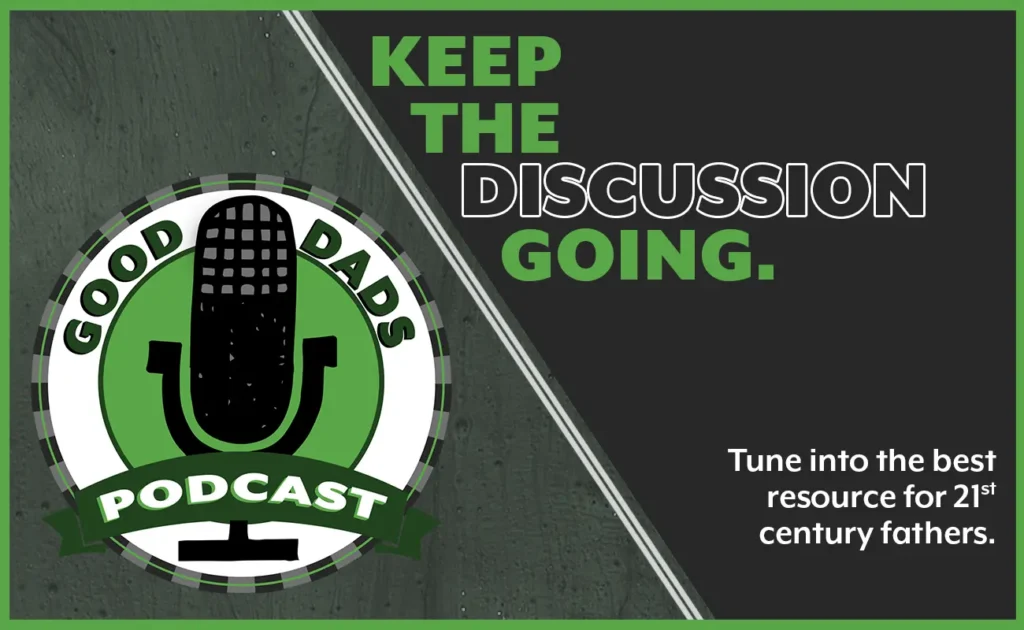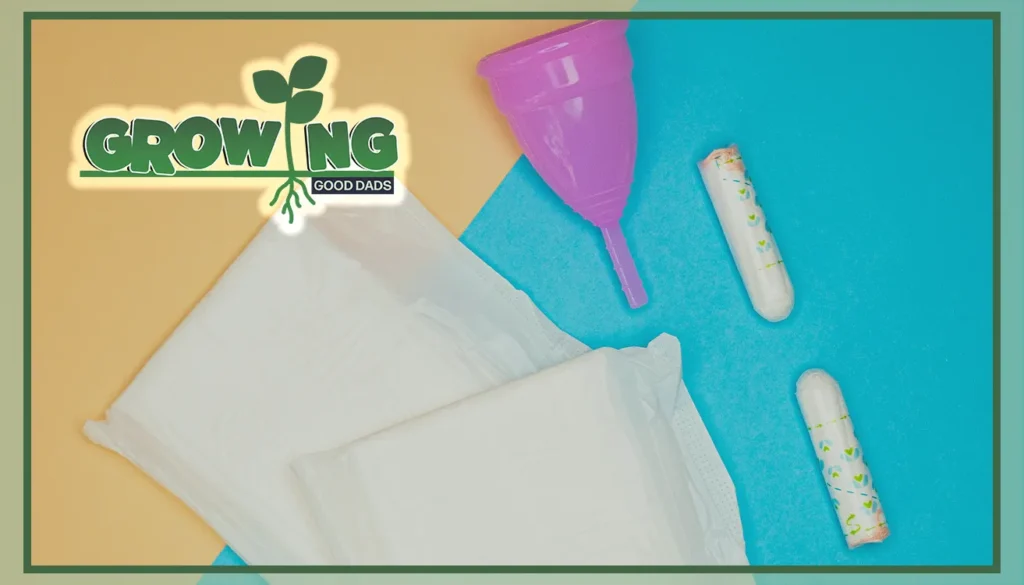Being a dad means being prepared for new experiences and challenges, and as your daughter approaches adolescence, you may find yourself in uncharted waters. One of the biggest milestones in this journey is her first period. This pivotal moment can be both exciting and scary—for her and for you. While periods are a natural part of growing up, it’s not always easy to know how to best support her.
This week in the Growing Good Dads blog, we spoke with Patricia Howell, Assistant Director for South Regional Clinics at Jordan Valley Community Health Center. The mother of five (including three daughters) offered her expert advice for how dads can be helpful during their daughter’s period—from understanding biological and hormonal changes to offering emotional and practical support.
By arming yourself with knowledge and empathy, you’ll be better prepared to help your daughter navigate this important coming-of-age transition safely and with confidence.
Open Dialogue can Combat Feelings of Shame
In Patricia Howell’s view, it’s never too early for families to start building relationships. She described open and safe communication as a simple but not always obvious form of support that all dads can employ for their kids.
“The most important thing you can give your child is open communication,” Howell said, adding that “even if we make every effort to remove shame (about periods), there are things outside of our control as parents.”
Dads should be intentional because kids are often shy about new things, Howell said. She encouraged dads to be the “inviters” of conversations about puberty and periods: Don’t just wait for your kids to come to you with questions. The onus is on you, Dad, to come to your children with information.
This is also a great opportunity to nip menstruation myths in the bud. For instance, Howell said many young women think they can’t get pregnant on their period. While it’s not as common, it IS possible to get pregnant while on your period. It might be uncomfortable to talk about, but sex and pregnancy is a much-needed conversation parents need to have with their kids.
Howell also said she couldn’t emphasize enough the importance of mental health for tweens and teens. She said kids are struggling, and some mental health concerns can worsen with puberty. Learn how to talk to your children about mental health — our Men & Mental Health Blog is a great place to start.
Recognize the Signs and Be Ready for Your Daughter’s First Period
For many girls entering adolescence, a first period is unexpected. (Most will get their first cycle between the ages of 9–13. Anything outside of that age range is uncommon—and you’d be wanting to follow up with your child’s doctor.)
“For a lot of girls, it happens of the blue,” Howell said, adding that it can be frightening for your daughter, even if she’s learned about menstruation before. It’s different when it finally happens to you.
“You can talk about it, but it will always surprise you—no matter how prepared you think you are,” she said.
One thing dads can do is stay vigilant to observe signs of development, which may help signal that a first menstrual cycle is on its way. About a year before her first period, your daughter will develop breast buds, Howell said. These are not fully formed breasts, but rather a firming of the tissue in the chest.
This is a good signal for dads to keep the doors of communication open. It’s also your sign to get prepared with the supplies you need.
In Howell’s experience, dads benefit from having something practical to hold onto, and she recommended dads offer their support by helping their daughters pick out a small, opaque zipper bag to use in a period kit. The bag might contain an extra pair of underwear, some pads and perhaps an encouraging note.
Keep a period kit in your car, and encourage your daughter to keep one in her backpack or locker. This can offer peace of mind to the both of you. And if your daughter’s period starts unexpectedly at school, she’ll have the agency to take care of it herself.
Establish a Relationship with Your Daughter’s Doctor
If your children aren’t attending yearly checkups, Howell said pre-adolescence is a perfect time to start this routine. Your child’s doctor will be able to help you and your tween understand the changes in her body, and they are a great resource for safe and reliable information.
“It’s important to have a relationship established with a doctor, because if things are off-base or you’re bleeding too much, it’s good to have that person in place,” Howell said.
Not only can healthcare professionals make sure everything is healthy and normal with your daughter’s cycle, building that relationship early on means your daughter knows she has a safe person to whom she can turn when she has questions about her body.
Sometimes Dads are the Last to Learn about Their Daughter’s First Period. Howell’s Advice? Don’t Take It Personally.
Howell emphasized that every family is unique, and that parent-child dynamics are different for everyone.
“You can be doing a great job and have a great relationship (with your daughters) and they still may not come to you on certain things,” she admitted.
But even if your daughter doesn’t choose her dad as her go-to person for support and answers regarding her period, Howell said that dads still have a responsibility to help their children identify other safe adults with knowledge on the subject in whom they can confide.
Your daughter’s mother is often the first, obvious choice. But aunts, older cousins, teachers and coaches can also be dependable, although this decision is a very personal one. Have a conversation with your daughter about who you both can trust.
Howell added that friends your daughter’s age aren’t always the best choice for resources about periods. Friends are a good source of peer support, but your daughter shouldn’t rely on them alone for answers to health questions.

LEARN MORE: E351—Dads of Pre-Teens
Period Products, Hygiene, Symptoms and “Feeling Icky”
In the beginning, your daughter’s hormones are still fluctuating, and her cycle may not be very routine at first. Sometimes, it takes a couple months to settle into that 28-day average cycle that is most common—but Howell reiterated that your daughter should get in to see her doctor to discuss symptoms and learn about problematic warning signs.
Your daughter’s doctor can also talk to her about period products, including pads, tampons, period underwear, menstrual cups, etc. The single most important thing to remember about any menstrual product, Howell said, is using them correctly and changing them frequently.
“All teenage girls need to know: The vagina is a self-cleaning organ,” Howell said.
No special soaps or products in private areas are necessary. Regular soap and water is adequate in the surrounding area, but nothing should go inside! Washing the inside of the vagina can cause a lot of harm.
Bleeding is not dirty, but it’s common to feel “icky” when you’re on your period, she said.
“I would recommend showering every day when on your period … but it shouldn’t be any different than your regular shower habit,” Howell said.
While Howell couldn’t make any sweeping recommendations regarding period symptoms, she said many women experience cramping, bloating, headaches, back pain and irritability. She wanted to remind dads that, even if a premenstrual symptom is common, doesn’t mean it’s normal. She encouraged dads to always follow up with a doctor to make sure what their daughter is dealing with is within the realm of what’s normal for her.
Give Your Daughter Permission to Take it Easy While on her Period
For some, menstruation is hardly noticeable, while for others, it can be debilitating. Encourage your daughter to listen to her body and make decisions for herself about what she can commit to. For example, we often think of moodiness and irritability as hand-in-hand with periods, but what some may not know is that those symptoms are because women’s bodies require more rest and more nourishment during their period, Howell said.
“Talk to your daughter about listening to her body’s needs,” she said. “If you’re hungry, eat something. If you’re tired, rest. Don’t keep pushing yourself so hard. This is your few days of the month where you have permission to say, ‘slow down.’”
Women can gain more insight into their cycles is a period tracker app, which can be helpful to increase body awareness. Most apps of this nature allow you to indicate on a calendar when you started bleeding and the heaviness of the flow as well as tracking vaginal discharge as it changes throughout the month.
Despite It All, She’s Still Your Daughter
As your daughter enters adolescence, she may start to pull away from her parents a little bit. Don’t take it personally, Howell said. Exercising independence is a part of growing up.
“They might look like women, but they are still little girls, and they still see you as their dad,” Howell said, encouraging dads to keep hugging daughters, supporting them and being the dad they need.
Additional Resources
- Healthychildren.org — a trusted resource in all stages of childhood development from the American Academy of Pediatrics
- View the lists of available pediatric services on the Jordan Valley website and talk to your daughter’s doctor about getting prepared for her first period.





